
“Several days ago”, the Pope began, “the Liturgy spoke of the work that was done by Jesus Christ, the Lord: the work of making peace and reconciling”. And, he added, “the other day, on the Feast of the Nativity of Our Lady, we asked for this grace of peace and reconciliation”.
“Peace and reconciliation”, therefore, is what “Jesus did: he made peace”, and “this is why he is called the Prince of Peace”. The Prophet Micah says in this regard that “he shall be peace” and “that he brings peace, that he makes peace”. Even “in our hearts, in our souls”, Francis explained. Then he asked, “how did he make peace? By giving his life as an offering, a prayer for the forgiveness of all”.
“I wonder”, the Pope continued, “if we are really thankful for this gift of peace that we received in Jesus”. Because “peace was made, but it wasn’t accepted”. And thus, he noted, “still, every day, on the news, in the papers, we see that there are wars, destruction, hatred, enmity, and that enmity that the Lord spoke of to the serpent after the sin, it’s there!”.
After all, he recalled, “there are also men and women who have worked so much — they work a lot! — to produce weapons for killing, arms that in the end become bathed in the blood of so many innocent people, so many people”. There are “wars and there is the wickedness of preparing for war, of making arms against the other, to kill”. The terms of the issue are clear: “Peace saves, peace lets you live, peace lets you grow; war destroys you, it brings you down”. People often say, “Father, it’s awful that this has happened there!”. But certain situations, Francis said, do not only happen in faraway places: “War even exists in our Christian communities, among ourselves”. And to address this, the Pope returned to “the advice that today’s Liturgy offers us: ‘Make peace among yourselves”, referring to the passage from the Letter to the Colossians (3:12-17).
So, he said, “there are two key words”. The first “is forgiveness: if we do not learn to forgive one another, we will always be at war”. Thus came the Pope’s exhortation: “As the Lord has forgiven you, so should you do”. But “if you do not know how to forgive, you are not a Christian”, he said, “because you do not do what the Lord did”. Moreover, “if you don’t forgive, you cannot receive the Lord’s peace, the Lord’s forgiveness”.
The Pontiff recalled that “each day, when we pray the Our Father, we say: ‘forgive us, as we forgive’”. And this, he explained, is in the “‘conditional’: we are trying to convince God to be good, as we are good in forgiving: the other way around”. In this regard the Pope commented: “Words, no? Like she sings in that beautiful song: ‘Words, words, words’, no? I thing the singer is Mina…. Words!”.
This is the right path: “Forgive one another! As the Lord has forgiven you, so should you do! Forgive one another! And some good advice for forgiving each other: forbear one another at home, in your neighbourhood, at work…. Bear with each other”, without resorting to whispering: “He did that…”. It’s important “to forbear, because he too bears with me”. In short, it takes “Christian patience”.
Francis then commented: “How many heroic women there are among our people who, for the good of their family, of their children, forbear so much brutality, so much injustice: they forbear and go forward with their family”. And “how many heroic men there are among our Christian people who forbear getting up early in the morning and going to work — often unfair, poorly paid work — to return late in the evening, to provide for their wife and children”. These people “are the just ones”.
However, the Pope stated, “how many others there are who instead of doing what they should, wag their tongue and create conflict”. Indeed, he said, “the same damage that a bomb creates in a town, the tongue creates in a family, in a neighbourhood, in a workplace”. Because “the tongue destroys, it makes war”. And “I’m not saying this”, the Pope said, “the Apostle James says it”. Here then is the practical advice of St Paul: “As the Lord has forgiven you, so should you do: forbear one another and forgive one another”.
Then, the Pontiff explained, “there is another word that Jesus says in the Gospel, because it repeats the same topic: mercy”. In the passage of Luke (6:27-38), the Lord says: “Be merciful, even as your Father is merciful”. It is an invitation to “understand others, not to condemn them: the Lord, the Father, is so merciful, he always forgives, he always wants to make peace with us”. But, Francis asked, “if you are not merciful, how can the Lord be merciful with you, since we will be judged by the same standard by which we judge others?”.
For this reason, he said, “if you are a priest and don’t feel you are merciful, tell your bishop so you can be given administrative work, but don’t go down to the confessional, please!”. Because “a priest who isn’t merciful does so much harm in the confessional: he lambastes people!”. Perhaps one could justify it, saying: “No, father, I am merciful, but I’m a little upset…”. This is the Pope’s response: “It’s true, before entering the confessional, go to the doctor so he can give a pill for your nerves! But be merciful!”.
One must be “merciful even among ourselves”. Instead of complaining — “he did this…” — we should ask ourselves: “what have I done?”. After all, who can say that “he is a worse sinner than I am? None of us can say this. Only the Lord can”. All of us, the Pope said, “can say, ‘I am a sinner and I need mercy and I need forgiveness. And this is why I forbear others, I forgive others and I am merciful with others’”. For “when the soul is like this, the Christian way is what Paul teaches his own: ‘Put on compassion, kindness, lowliness, meekness, and patience”, as the Letter to the Colossians reads.
This, then, “is the Christian way: it is not arrogance, it is not condemnation, it is not speaking ill of others”. The Christian way is “compassion, kindness, lowliness, meekness, and patience”. Ultimately, it is “the way of Jesus, the way by which Jesus made peace and reconciliation, until the end”. Such that, “at the end, in the final yearnings of life, he managed to hear something that the thief said: ‘Yes, yes, yes, come with me, dear one, come to Paradise’”.
Francis concluded his meditation with a prayer “that the Lord give each of us the grace to forbear others, to forgive, to be merciful, as the Lord is merciful with us; and to have this Christian way of compassion, kindness, lowliness, meekness, and patience”.

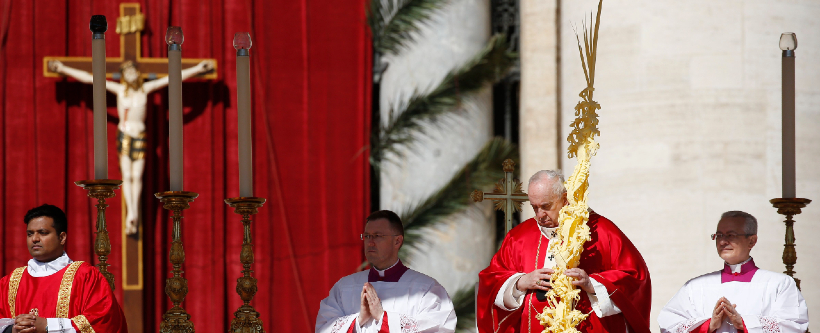
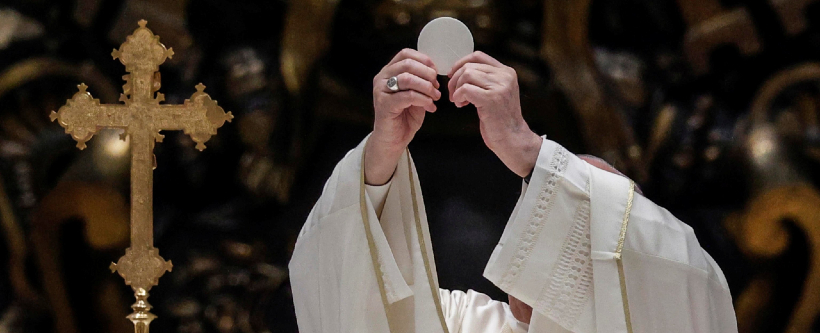
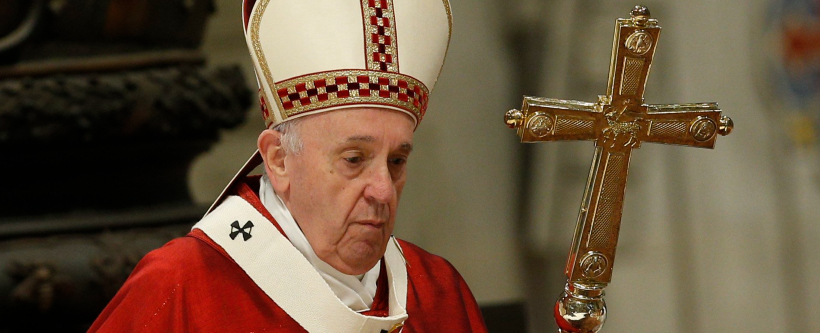
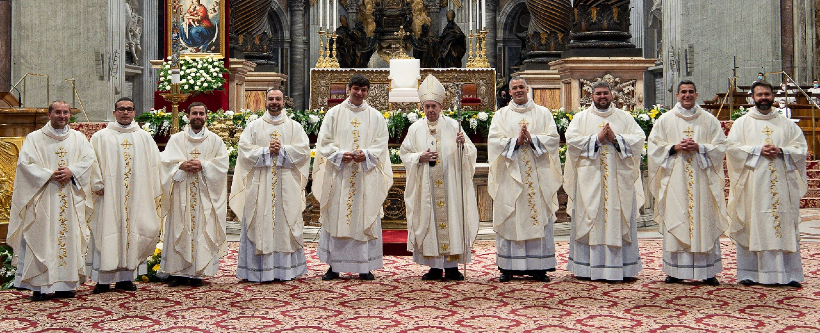
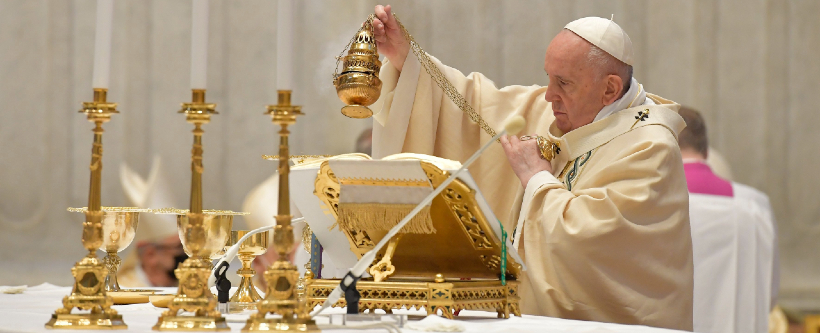
Facebook Comments